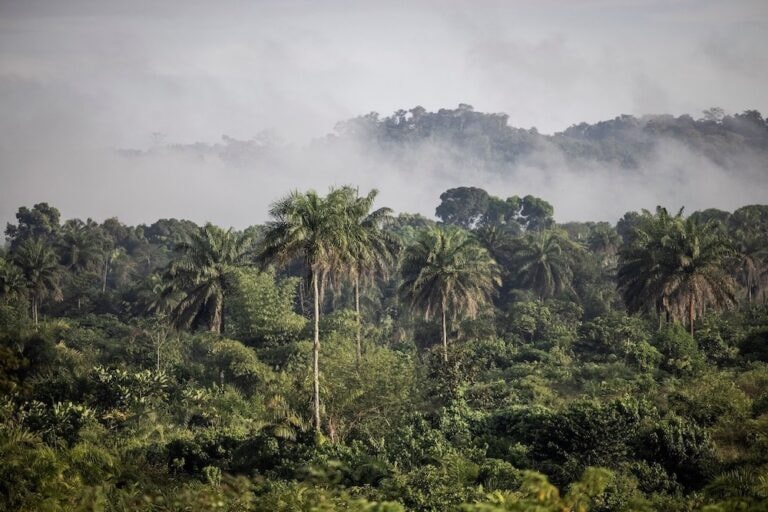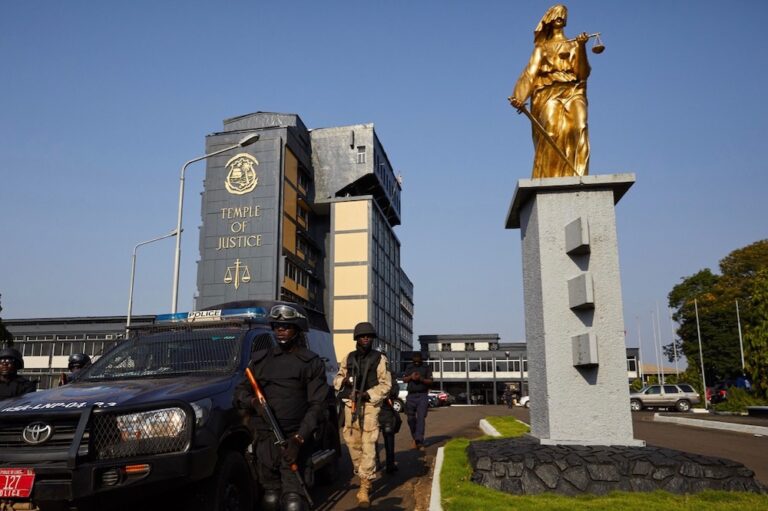The Press Union of Liberia (PUL) has, in a petition, prayed for the Supreme Court of Liberia to reverse the government’s decision on the “continuous and illegal closure” of The National Chronicle newspaper.
The Press Union of Liberia (PUL) has, in a petition, prayed for the Supreme Court of Liberia to reverse the government’s decision on the “continuous and illegal closure” of The National Chronicle newspaper.
The Writ of Prohibition was filed on 18 September 2014 at the Supreme Court of Liberia, asking the High Court to overturn the decision of the government to continue to have the newspaper shut down.
It can be recalled that on 14 August 2014, Liberia National Police (LNP) officers barricaded, fired teargas, and subsequently broke into the offices of The National Chronicle. Two members of the paper’s staff – Editor Emmanuel Mensah and Information Technology Officer Emmanuel Logan – were arrested and taken into police custody, but later released after their lawyers intervened.
Shortly after the fracas between Mr. Philibert Browne and the LNP, his son Mr. Archie Browne was arrested and detained for four days. He was subsequently charged with aggravated sexual assault and attempt to commit murder and sent to court. The matter is still before the court.
While authorities have not said there is any correlation between the arrests, CEMESP suspects that there is a strong link.
In the petition filed, the PUL further condemned the closure of the newspaper. It deemed the closure of the paper to be a total violation of press freedom and freedom of expression, as enshrined in the Constitution of Liberia, Article 15 (c).
Representing the PUL, Counselor Syrenius Cephas said that the filing of the petition stated that “the PUL has disagreed with the government and is now exploring judiciary action to turn over the illegality”.
Meanwhile, Mr. Malcolm Joseph, Executive Director for the Center for Media Studies and Peacebuilding, supports the recourse to due process of the law in this matter.
He said that the arbitrary closure of media houses based on unfounded fears and perception of people in government sets a bad precedent.


